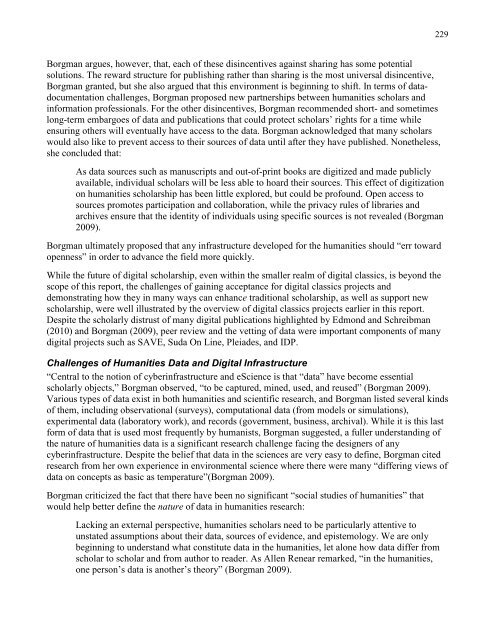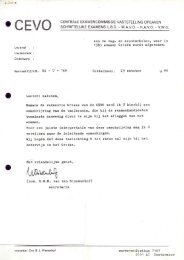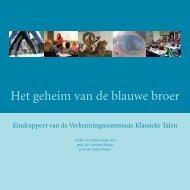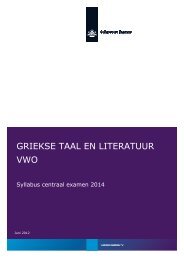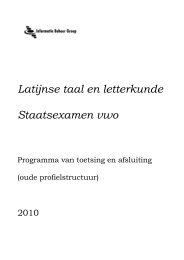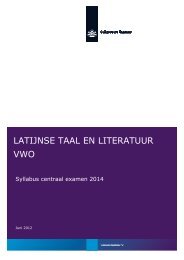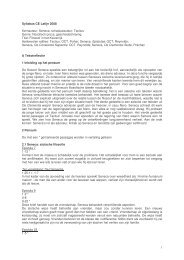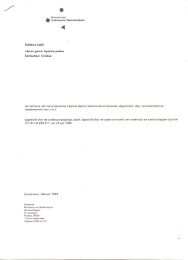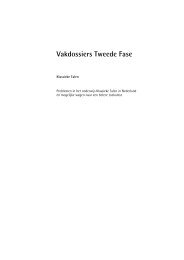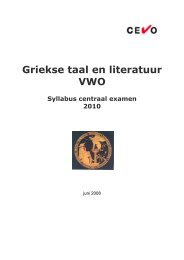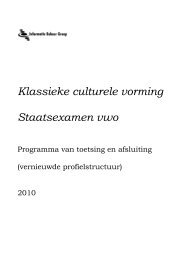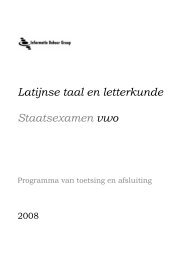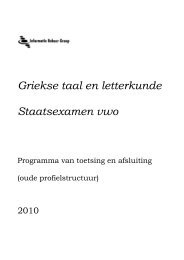Rome Wasn't Digitized in a Day - Council on Library and Information ...
Rome Wasn't Digitized in a Day - Council on Library and Information ...
Rome Wasn't Digitized in a Day - Council on Library and Information ...
You also want an ePaper? Increase the reach of your titles
YUMPU automatically turns print PDFs into web optimized ePapers that Google loves.
229<br />
Borgman argues, however, that, each of these dis<str<strong>on</strong>g>in</str<strong>on</strong>g>centives aga<str<strong>on</strong>g>in</str<strong>on</strong>g>st shar<str<strong>on</strong>g>in</str<strong>on</strong>g>g has some potential<br />
soluti<strong>on</strong>s. The reward structure for publish<str<strong>on</strong>g>in</str<strong>on</strong>g>g rather than shar<str<strong>on</strong>g>in</str<strong>on</strong>g>g is the most universal dis<str<strong>on</strong>g>in</str<strong>on</strong>g>centive,<br />
Borgman granted, but she also argued that this envir<strong>on</strong>ment is beg<str<strong>on</strong>g>in</str<strong>on</strong>g>n<str<strong>on</strong>g>in</str<strong>on</strong>g>g to shift. In terms of datadocumentati<strong>on</strong><br />
challenges, Borgman proposed new partnerships between humanities scholars <strong>and</strong><br />
<str<strong>on</strong>g>in</str<strong>on</strong>g>formati<strong>on</strong> professi<strong>on</strong>als. For the other dis<str<strong>on</strong>g>in</str<strong>on</strong>g>centives, Borgman recommended short- <strong>and</strong> sometimes<br />
l<strong>on</strong>g-term embargoes of data <strong>and</strong> publicati<strong>on</strong>s that could protect scholars’ rights for a time while<br />
ensur<str<strong>on</strong>g>in</str<strong>on</strong>g>g others will eventually have access to the data. Borgman acknowledged that many scholars<br />
would also like to prevent access to their sources of data until after they have published. N<strong>on</strong>etheless,<br />
she c<strong>on</strong>cluded that:<br />
As data sources such as manuscripts <strong>and</strong> out-of-pr<str<strong>on</strong>g>in</str<strong>on</strong>g>t books are digitized <strong>and</strong> made publicly<br />
available, <str<strong>on</strong>g>in</str<strong>on</strong>g>dividual scholars will be less able to hoard their sources. This effect of digitizati<strong>on</strong><br />
<strong>on</strong> humanities scholarship has been little explored, but could be profound. Open access to<br />
sources promotes participati<strong>on</strong> <strong>and</strong> collaborati<strong>on</strong>, while the privacy rules of libraries <strong>and</strong><br />
archives ensure that the identity of <str<strong>on</strong>g>in</str<strong>on</strong>g>dividuals us<str<strong>on</strong>g>in</str<strong>on</strong>g>g specific sources is not revealed (Borgman<br />
2009).<br />
Borgman ultimately proposed that any <str<strong>on</strong>g>in</str<strong>on</strong>g>frastructure developed for the humanities should “err toward<br />
openness” <str<strong>on</strong>g>in</str<strong>on</strong>g> order to advance the field more quickly.<br />
While the future of digital scholarship, even with<str<strong>on</strong>g>in</str<strong>on</strong>g> the smaller realm of digital classics, is bey<strong>on</strong>d the<br />
scope of this report, the challenges of ga<str<strong>on</strong>g>in</str<strong>on</strong>g><str<strong>on</strong>g>in</str<strong>on</strong>g>g acceptance for digital classics projects <strong>and</strong><br />
dem<strong>on</strong>strat<str<strong>on</strong>g>in</str<strong>on</strong>g>g how they <str<strong>on</strong>g>in</str<strong>on</strong>g> many ways can enhance traditi<strong>on</strong>al scholarship, as well as support new<br />
scholarship, were well illustrated by the overview of digital classics projects earlier <str<strong>on</strong>g>in</str<strong>on</strong>g> this report.<br />
Despite the scholarly distrust of many digital publicati<strong>on</strong>s highlighted by Edm<strong>on</strong>d <strong>and</strong> Schreibman<br />
(2010) <strong>and</strong> Borgman (2009), peer review <strong>and</strong> the vett<str<strong>on</strong>g>in</str<strong>on</strong>g>g of data were important comp<strong>on</strong>ents of many<br />
digital projects such as SAVE, Suda On L<str<strong>on</strong>g>in</str<strong>on</strong>g>e, Pleiades, <strong>and</strong> IDP.<br />
Challenges of Humanities Data <strong>and</strong> Digital Infrastructure<br />
“Central to the noti<strong>on</strong> of cyber<str<strong>on</strong>g>in</str<strong>on</strong>g>frastructure <strong>and</strong> eScience is that “data” have become essential<br />
scholarly objects,” Borgman observed, “to be captured, m<str<strong>on</strong>g>in</str<strong>on</strong>g>ed, used, <strong>and</strong> reused” (Borgman 2009).<br />
Various types of data exist <str<strong>on</strong>g>in</str<strong>on</strong>g> both humanities <strong>and</strong> scientific research, <strong>and</strong> Borgman listed several k<str<strong>on</strong>g>in</str<strong>on</strong>g>ds<br />
of them, <str<strong>on</strong>g>in</str<strong>on</strong>g>clud<str<strong>on</strong>g>in</str<strong>on</strong>g>g observati<strong>on</strong>al (surveys), computati<strong>on</strong>al data (from models or simulati<strong>on</strong>s),<br />
experimental data (laboratory work), <strong>and</strong> records (government, bus<str<strong>on</strong>g>in</str<strong>on</strong>g>ess, archival). While it is this last<br />
form of data that is used most frequently by humanists, Borgman suggested, a fuller underst<strong>and</strong><str<strong>on</strong>g>in</str<strong>on</strong>g>g of<br />
the nature of humanities data is a significant research challenge fac<str<strong>on</strong>g>in</str<strong>on</strong>g>g the designers of any<br />
cyber<str<strong>on</strong>g>in</str<strong>on</strong>g>frastructure. Despite the belief that data <str<strong>on</strong>g>in</str<strong>on</strong>g> the sciences are very easy to def<str<strong>on</strong>g>in</str<strong>on</strong>g>e, Borgman cited<br />
research from her own experience <str<strong>on</strong>g>in</str<strong>on</strong>g> envir<strong>on</strong>mental science where there were many “differ<str<strong>on</strong>g>in</str<strong>on</strong>g>g views of<br />
data <strong>on</strong> c<strong>on</strong>cepts as basic as temperature”(Borgman 2009).<br />
Borgman criticized the fact that there have been no significant “social studies of humanities” that<br />
would help better def<str<strong>on</strong>g>in</str<strong>on</strong>g>e the nature of data <str<strong>on</strong>g>in</str<strong>on</strong>g> humanities research:<br />
Lack<str<strong>on</strong>g>in</str<strong>on</strong>g>g an external perspective, humanities scholars need to be particularly attentive to<br />
unstated assumpti<strong>on</strong>s about their data, sources of evidence, <strong>and</strong> epistemology. We are <strong>on</strong>ly<br />
beg<str<strong>on</strong>g>in</str<strong>on</strong>g>n<str<strong>on</strong>g>in</str<strong>on</strong>g>g to underst<strong>and</strong> what c<strong>on</strong>stitute data <str<strong>on</strong>g>in</str<strong>on</strong>g> the humanities, let al<strong>on</strong>e how data differ from<br />
scholar to scholar <strong>and</strong> from author to reader. As Allen Renear remarked, “<str<strong>on</strong>g>in</str<strong>on</strong>g> the humanities,<br />
<strong>on</strong>e pers<strong>on</strong>’s data is another’s theory” (Borgman 2009).


